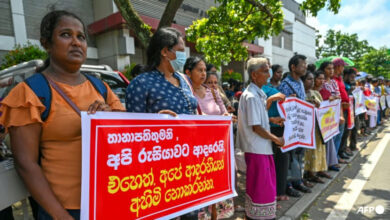Indian energy firm to prioritise power sale deal with Bangladesh after court relief

New Delhi: GMR Energy, India’s one of the leading energy trading companies, has said that it would give first priority to signing an agreement with Bangladesh to sell 500MW of electricity to be produced by 900MW Upper Karnali Hydropower Project after the Supreme Court verdict in favour of the company, The Kathmandu Post reports.
The Constitutional Bench of the Supreme Court on 7 May vacated an interim order it had issued earlier in response to half-a-dozen writ petitions, which had challenged a government decision to give the Indian developer more time to conclude the project’s financial closure that entails ensuring enough resources to implement the project.
The interim order had kept the Indian firm from signing a trilateral power sale agreement with the Bangladesh Power Development Board and NTPC Vidyut Vyapar Nigam Limited (NVVN) of India.
“Now we will be expediting the signing of the tripartite agreement, which will be one of the key milestones for our company. We hope to do so within the next three to four months,” said KK Sharma, head of the GMR Upper Karnali Hydropower Company.
The Indian company says the agreement will ensure a market for the 900MW Upper Karnali Project and thus help the company conclude the financial closure.
A source at the company told the Post that its team has already started the work by resuming communications with the relevant stakeholders in Bangladesh.
“We have been receiving positive responses from the Bangladesi side,” the source said. The company, however, has yet to receive the Constitutional Bench’s directive order that was issued alongside the verdict, the source said.
The Supreme Court scrapped six writ petitions filed against the extension of the deadline on different dates, paving the way for GMR to proceed with financial closure.
When the Cabinet on 15 July last year extended the deadline for concluding the financial closure, the Indian firm was preparing to sign a tripartite agreement by January this year and conclude financial closure in two years.

But the Supreme Court in early August last year issued an interim order throwing the 900 MW Hydropower Project’s future into uncertainty.
“When the interim order was issued, we were preparing to deposit bank guarantee at a Bangladeshi bank, a prerequisite for signing the power sale agreement,” the company source said. “The interim order not only delayed the plan for power sale agreement, our works related to forest clearance and land activities were also halted.”
Bangladesh had earlier signed a memorandum of understanding with India’s NVVN to import electricity from the Upper Karnali Project via India during Bangladeshi Prime Minister Sheikh Hasina’s visit to New Delhi in April 2017.
In 2020, Bangladesh issued a letter of intent to purchase 500 MW of electricity from the project. The power purchase agreement rate was also agreed upon between GMR Energy and the Bangladeshi authority at 7.712 cents per unit for a period of 25 years.
Before the latest Supreme Court verdict, the Indian company along with government agencies made efforts to vacate the interim order. In mid-November, they moved the Supreme Court to vacate the stay order arguing that the court’s decision would further delay the project.
In response, justices duo of Kumar Regmi and Til Prasad Shrestha on January 3 had forwarded the dispute involving the project to the apex court’s constitutional bench.
GMR has long been struggling to conclude the financial closure. On September 19, 2014, the Investment Board Nepal and GMR Energy first signed the project development agreement, giving the Indian company two years to conclude financial closure for the project.
The deadline was extended on January 8, 2017, by a year. On November 10, 2017, the Investment Board extended the deadline by another year, against which a writ petition was under consideration in the Supreme Court.
When the interim order was issued last year, the court had also questioned why the Cabinet had to extend the deadline for financial closure while the law authorised the Investment Board to do so. “There can be no justification for extending the deadline for financial closure until 2024 as the agreement was signed for two years in 2014,” the court said.
On October 9 last year, the government had formed a task force under the then vice-chairman of the National Planning Commission Biswo Poudel to study whether to extend the financial closure deadline. Lamsal said the deadline was extended by attaching certain conditions to recommendations of the task force.
The GMR and India’s state-owned SJVN Limited were awarded two projects, 900MW Upper Karnali and 900MW Arun 3, respectively, at the same time in 2008. The SJVN Limited is set to complete the project and it is also planning to develop two more projects on the same river. But the GMR has been struggling to generate resources to develop the Upper Karnali Project.
A GMR official argued that it is not reasonable to compare a private company with a state-owned one. “For a state-owned company, a Cabinet decision is enough to generate resources while a private firm has to generate resources by signing power sale agreements among others.”


![Mumtaz Zahra Baloch, spokesperson for Pakistan's Foreign Ministry, says the country believes in constructive dialogue with the US [Courtesy of Pakistan Ministry of Foreign Affairs]](https://southasiancorrespondent.com/wp-content/uploads/2024/06/pak-1-390x220.jpg)

